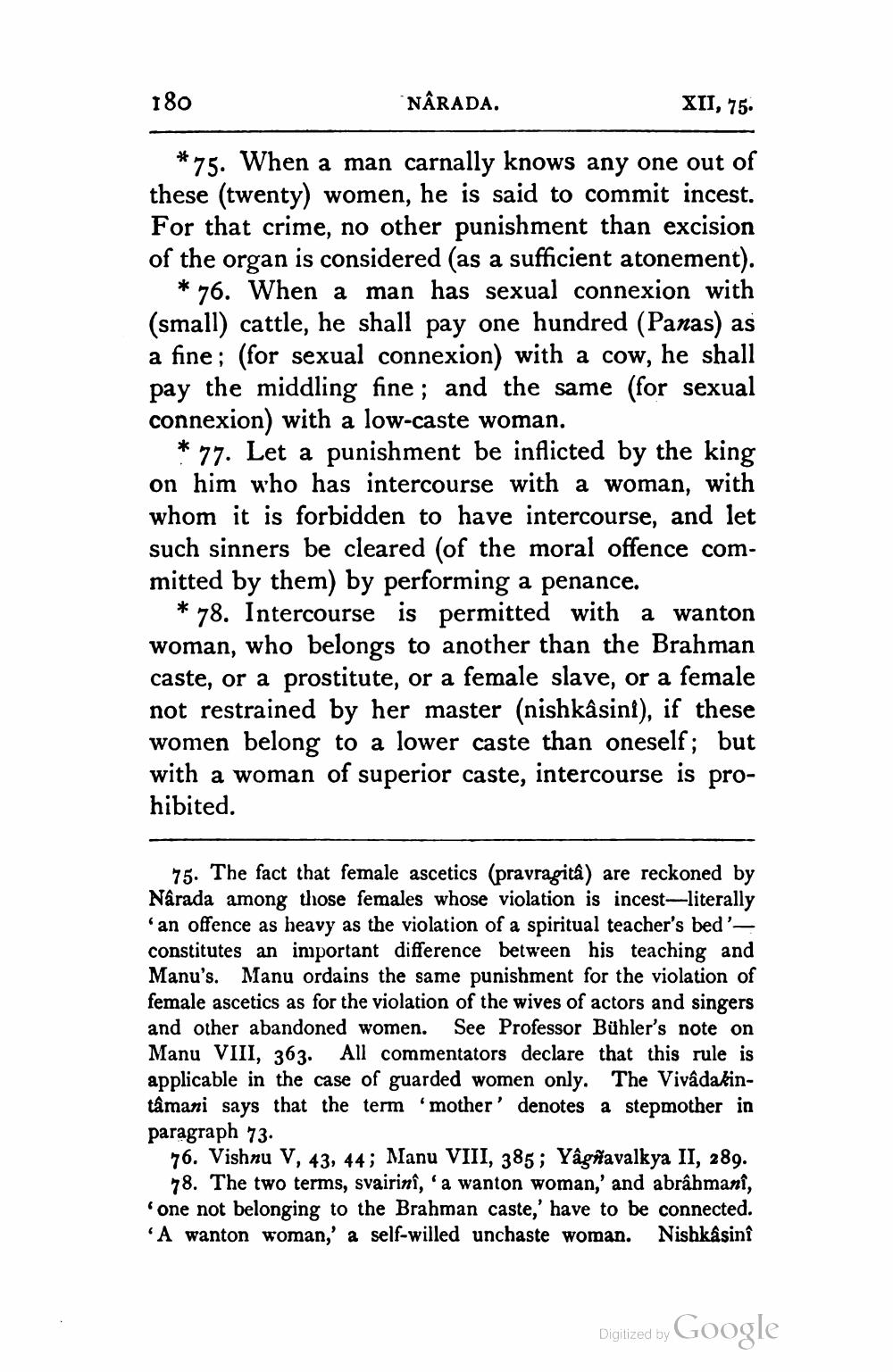________________
180
NÂRADA.
XII, 75.
*75. When a man carnally knows any one out of these (twenty) women, he is said to commit incest. For that crime, no other punishment than excision of the organ is considered (as a sufficient atonement).
* 76. When a man has sexual connexion with (small) cattle, he shall pay one hundred (Panas) as a fine; (for sexual connexion) with a cow, he shall pay the middling fine; and the same (for sexual connexion) with a low-caste woman.
* 77. Let a punishment be inflicted by the king on him who has intercourse with a woman, with whom it is forbidden to have intercourse, and let such sinners be cleared (of the moral offence committed by them) by performing a penance.
*78. Intercourse is permitted with a wanton woman, who belongs to another than the Brahman caste, or a prostitute, or a female slave, or a female not restrained by her master (nishkâsini), if these women belong to a lower caste than oneself; but with a woman of superior caste, intercourse is prohibited.
75. The fact that female ascetics (pravra gita) are reckoned by Narada among those females whose violation is incest-literally
an offence as heavy as the violation of a spiritual teacher's bed'constitutes an important difference between his teaching and Manu's. Manu ordains the same punishment for the violation of female ascetics as for the violation of the wives of actors and singers and other abandoned women. See Professor Bühler's note on Manu VIII, 363. All commentators declare that this rule is applicable in the case of guarded women only. The Vivadakintâmani says that the term 'mother' denotes a stepmother in paragraph 73.
76. Vishnu V, 43, 44; Manu VIII, 385; Yâgñavalkya II, 289.
78. The two terms, svairinî, 'a wanton woman,' and abrâhmani, one not belonging to the Brahman caste,' have to be connected. 'A wanton woman,' a self-willed unchaste woman. Nishkasini
Digitized by Google




